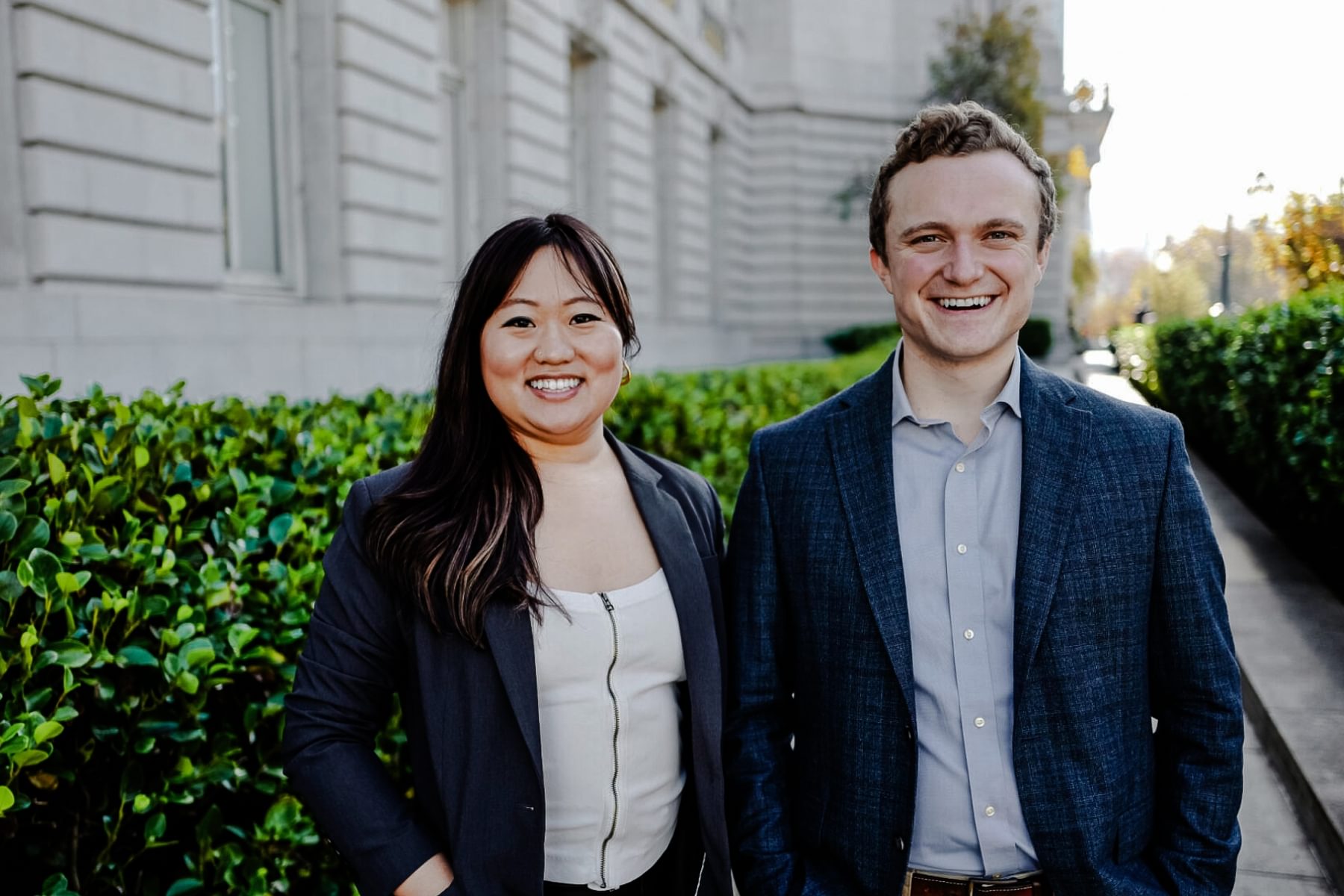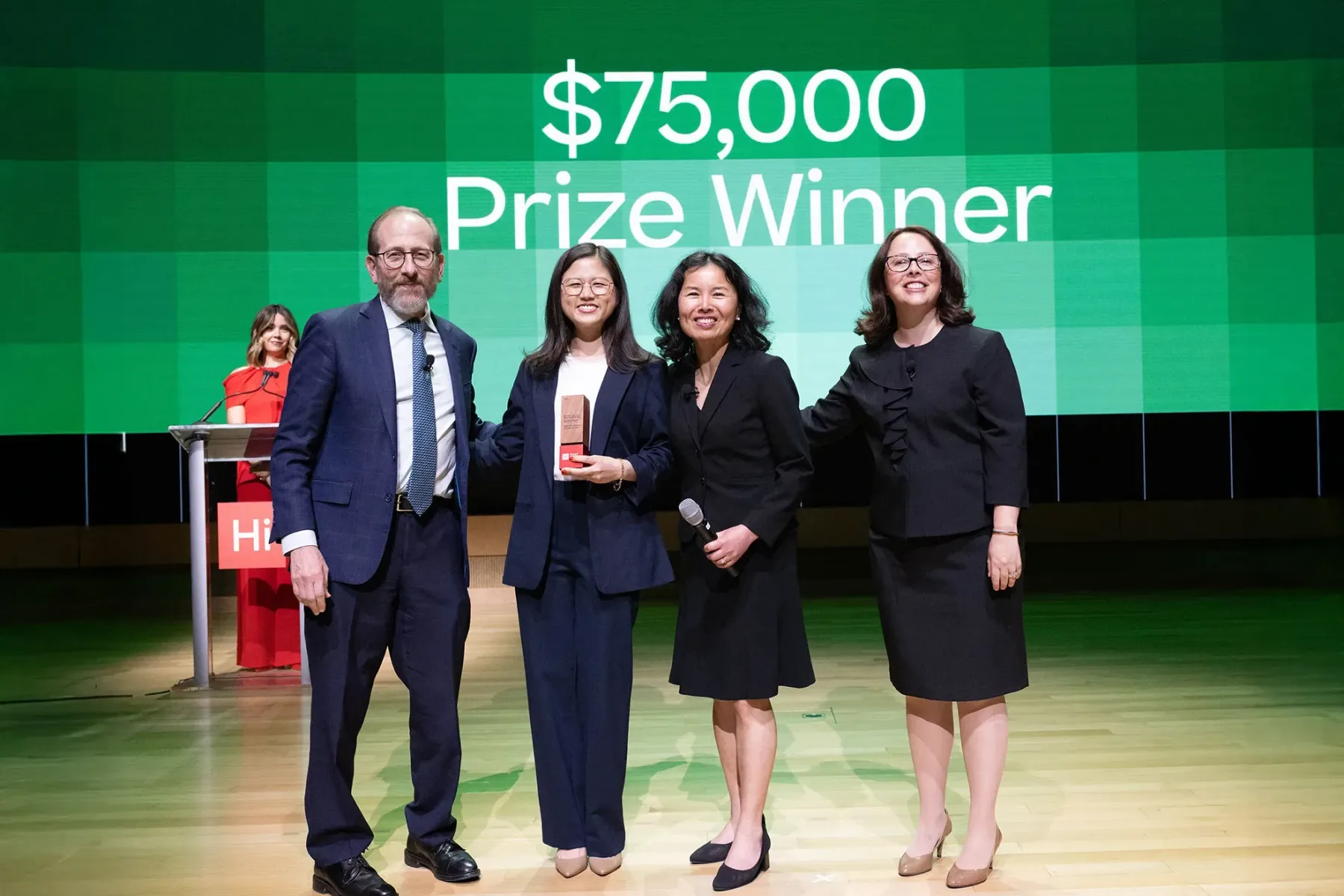During the semifinalist phase of the President’s Innovation Challenge, 158 student and alumni teams are pushing the limits of what’s possible, pursuing their wildest imaginations in the name of their ventures. Their specialties range from virtual learning to gene therapy — and their hopes are riding on taking their ventures to the PIC finals, where they’ll compete to win up to $75,000 in Bertarelli Foundation prize funding.
This year, like any other, only a fraction of teams will advance beyond this stage. But the lessons they learn will shape the future of their ventures. In honor of the hard work and perseverance of all our teams, we caught up with three past semifinalists to learn about the evolution of their ventures since participating in the PIC.
Gonzalo Muñoz: CEO, BioDevek
As a venture, what is it like being part of the PIC?
Last year was my first time entering. It was an amazing experience. I’ve never spoken in front of so many people — and all the lights! The committee and advisors across disciplines gave us some great feedback. It was extremely helpful and added a lot of value and fresh points of view, asking us questions like how would it be used or what distribution channels would we use?
In terms of exposure, it was amazing. People were very curious about the technology, and some came forward who wanted to collaborate or see if they could use it for certain procedures. It was really nice for us to see how well it was received by everyone.
What changed for your venture during the semifinalist phase of the PIC?
Being a semifinalist was a unique opportunity to broaden our vision of everything needed to successfully bring our technology to the market. The feedback from the mentors helped us to look for important answers to questions about reimbursement and regulatory aspects of our product. It helped us expand our network of experts, key opinion leaders, and other finalists. Meeting ventures in our same stage was critical: It allowed us to share common challenges and solutions for early-stage, day-to-day operations.
What excites you most about the future of your venture?
Right now, there are advanced surgical procedures where through a single hole, a tumor can be removed. Yet we are still using the same, very old wound-closing techniques — like sutures and staples — to close fancy surgeries. We’re leveraging the research at Harvard and MIT to bring solutions to patients to bridge that gap.
We have a soft material with super-high water content — hydrogel — that can seal and protect all types of tissues. We’ve had some really good results in preclinical studies and we have already confirmed that they can be manufactured on a large scale. After researching glues and other materials on the market, we found that ours was the only one that can sense and recognize tissue: We can spray it on the stomach, lungs, intestines, heart, and it provides optimal adhesion and higher strength — and it was way more compatible with the tissue it adheres to; it mimics it. It’s more elastic in the lungs, for example. These results are inspiring us to push forward. We’re now seeking to raise our series A, which could allow us to bring this technology to the clinic as soon as 2025.

Nikita Roy: Founder & Publisher of The NRI Nation
What did being a PIC semifinalist mean to you?
First of all, it was a huge acknowledgement of how far we had come. It was such a source of celebration because so many people had applied. It also felt really validating that people were talking about The NRI Nation — that they knew what NRI (Non-Resident Indian) stood for and were becoming familiar with the issues we were talking about. It gave us a lot of exposure. It was an opportunity to showcase why our venture exists and the unique challenges facing the Indian diaspora population.
How has your venture evolved since being named a semifinalist last year?
As a student and a founder, I always call the i-lab an innovator’s paradise, because you get all the support you could ever dream of. Participating in the PIC challenged me to build out my pitch deck, my business plan. All the insights and feedback we got from i-lab experts along the way proved useful and yielded results: After the PIC, we got funding and support from the International Center for Journalists and the Google News Initiative Startups Labs, hosted in partnership with LION Publishers. Our venture was also recognized and supported by the Canadian youth accelerator — the League of Innovators, in their 2022 accelerator cohort. The PIC helped me dedicate time to getting our story right, figuring out where we are, what our journey would look like, and talking about our impact, which really helped me later on.
You just found out that NRI Nation made it to the PIC semifinals again this year. What are your goals this time around?
In journalism, it’s about the impact — and the potential to see that impact. I’m really privileged to be at Harvard with all these resources and opportunities, like the PIC. I’m graduating in May, and I’m thinking: How can I take advantage of all the available resources to further this venture and continue making an impact after I graduate? It motivates me, trying to see the difference this venture can make. When I moved to Toronto at 18, I wished I had something like The NRI Nation, and that’s what I’m trying to build with the resources at Harvard and the i-lab.

Gauthier Willemse, Cofounder, Rotayo
How has your venture changed shape since you were a PIC semifinalist?
We’ve definitely evolved. We originally created a platform to facilitate international rotations for medical residents. Then we had nurses who wanted to engage in international opportunities as well. We realized our platform was a little too narrow in scope, so we expanded it and changed our name from Residents Abroad to Rotayo to reflect that. I got a ton out of my experience at the i-lab after the PIC, over the summer. While I had been finishing my Master’s in public health, I had missed a lot of what the i-lab had to offer. But in the summer, when I decided to go all-in on my venture, I went back to the i-lab’s resources: all the workshops and presentations I had missed. I downloaded and watched them all. I came to Harvard with zero entrepreneurship experience. So after the PIC, when I was a little further along on my entrepreneurship journey, all the resources resonated with me even more and helped me along.
What’s the most surprising thing you learned?
I think the most important thing I learned is to do a lot myself. For some reason, I thought starting a company was like forming a big team, with everyone assigned to a separate task. Maybe in big companies it is, but in a startup, it’s all about moving fast and being smart, fox-like. It’s a poker game, or a chess game. When I entered the i-lab, I thought I needed to find a technical cofounder. But someone at the i-lab suggested that I do the tech stuff myself and learn a little every day. I realized I needed to learn new skills, because a full stack engineer isn’t going to just appear. So that’s what I started to do — learning computer science, coding, and backend engineering. Now I manage our tech stack. The most important takeaway was a mentality shift: Yes, you can do it. The American dream kind of thing.
What would you tell other founders who make it to the semifinals but don’t progress to the final round of the PIC?
I remember when we didn’t make it to the finals, we were disappointed — but that’s not really what it’s about. What you’re getting out of it is the expertise. You’re learning how to play this chess game very well. You’re the only one who knows the full potential of your idea. You’re the expert. You have to think, if
a jury doesn’t select you, maybe you’re not conformist. Being nonconformist is a very good recipe for being successful. You have to keep believing in your idea. It’s not the PIC prize that’s gonna make the difference; it’s the grit and the energy you take with you.






